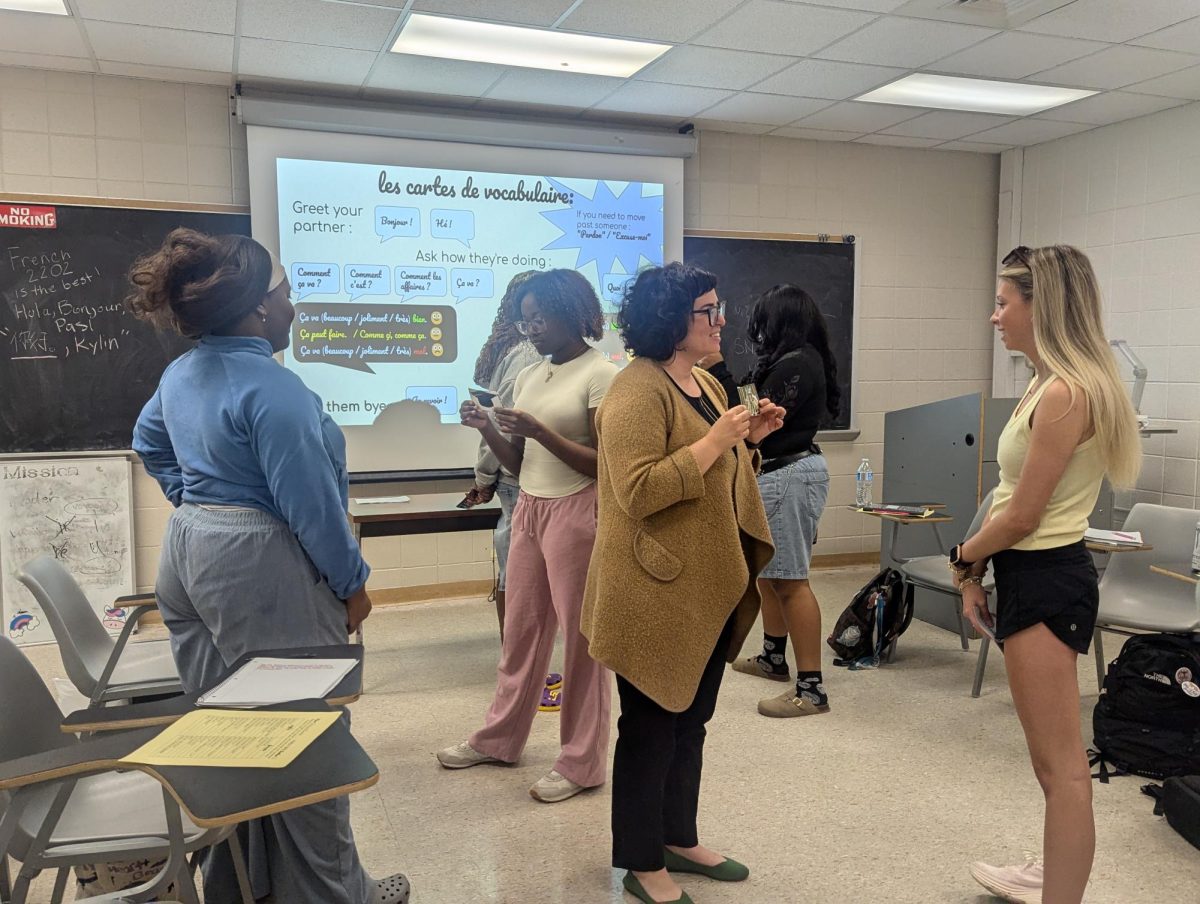An LSU philosophy professor received a grant from the Louisiana Board of Regents to incorporate ethics and values into the university’s science, technology, engineering, and math curriculum.
Deborah Goldgaber, who has been teaching philosophy at LSU since 2014, will work with STEM professors to integrate ethical components to existing classes. The ultimate goal of the project is to teach STEM students moral literacy so they have the language and skills to talk about ethical challenges in their fields, Goldgaber said.
Computer Science professors, for example, can learn about including lessons on the ethical implications of artificial intelligence, while biology professors explore ways to talk about moral dilemmas presented by advances in medicine and technology.
“AI is a big area where ethics is constantly at risk of exploding onto the scene,” Goldgaber said. “AI is being asked to take the place of human decision makers. How do you have responsible AI? That’s a big question.”
Goldgaber will recruit interested STEM professors over the summer and start the training in the fall. The goal is to have the professors incorporate modules into their courses in spring 2023.
Once implemented, STEM students may come across additional lessons that stray away from the technical coursework – an assigned reading and discussion on privacy issues for a computer science class, for example.
“Thinking about ethical problems in teaching students is absolutely fundamental and should be part of the behavioral patterns of every professor,” said Hartmut Kaiser, a computer science professor and senior scientist of LSU’s Center for Computation and Technology.
Kaiser said that he talks about ethical issues surrounding software development with his graduate students. Implementing ethics into already rigorous STEM coursework could initially be a challenge for some professors, Kaiser said, but is nonetheless important.
Kaiser said the same LSU students in STEM classes now could be the ones who are facing important questions about AI in 20 years.
He gave the example of what happens when we develop self aware artificial intelligence – do these entities have rights like humans? Can these machines solve any problem a human can?
Those questions are at the core of the “philosophy of artificial intelligence,” a branch of philosophy. But computer scientists will need to start thinking about these questions too, Kaiser said.
Another issue is that AI relies on a tremendous amount of data that can be skewed or used in harmful ways. Gender bias, racial prejudice, and age discrimination can make its way into AI systems since these machines are programmed by humans.
How much ethics are discussed in STEM classes can vary by major and the course. Haley Devries, who is finishing her freshman year in industrial engineering, said that so far, ethical and workers’ rights concerns have been fundamental to her coursework.
For Computer Science junior Roshad Richard, classroom discussions surrounding ethics have been absent.
“We get so wrapped up in the workflow and the engineering, design process, that oftentimes our morals slip out of the window,” Richard said. “We’re almost seen as computers ourselves.”
Richard said he would welcome the introduction of more ethics and value discussion in STEM coursework.
Goldgaber’s program will be modeled after Harvard’s Ethics program, which is focused on ethics in computer science. But Goldgaber’s program will cover all STEM fields at LSU, including bioethics, research ethics and human-centered design.
“I was pleased to learn about Dr. Goldgaber’s efforts to work with science faculty to incorporate ethics into the STEM courses,” said College of Science Dean Cynthia Peterson. “Dr. Goldgaber embraces a collaborative approach to develop course components desired by our faculty and students.”






